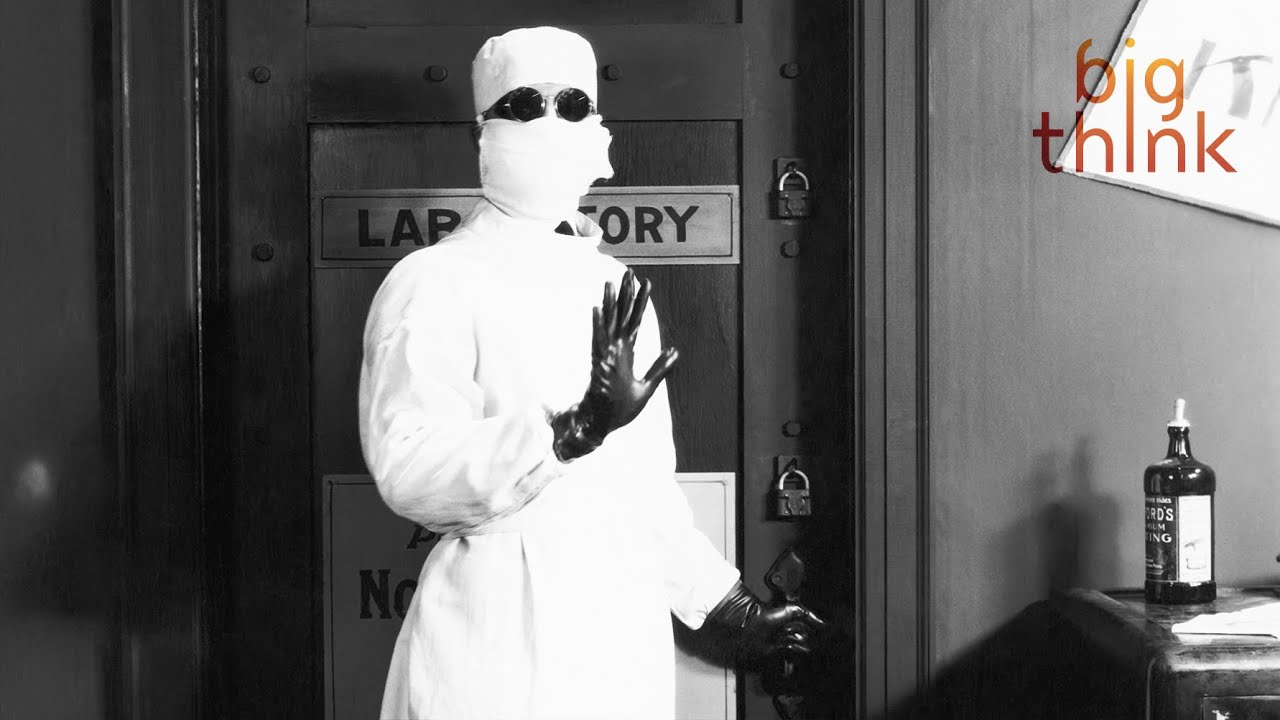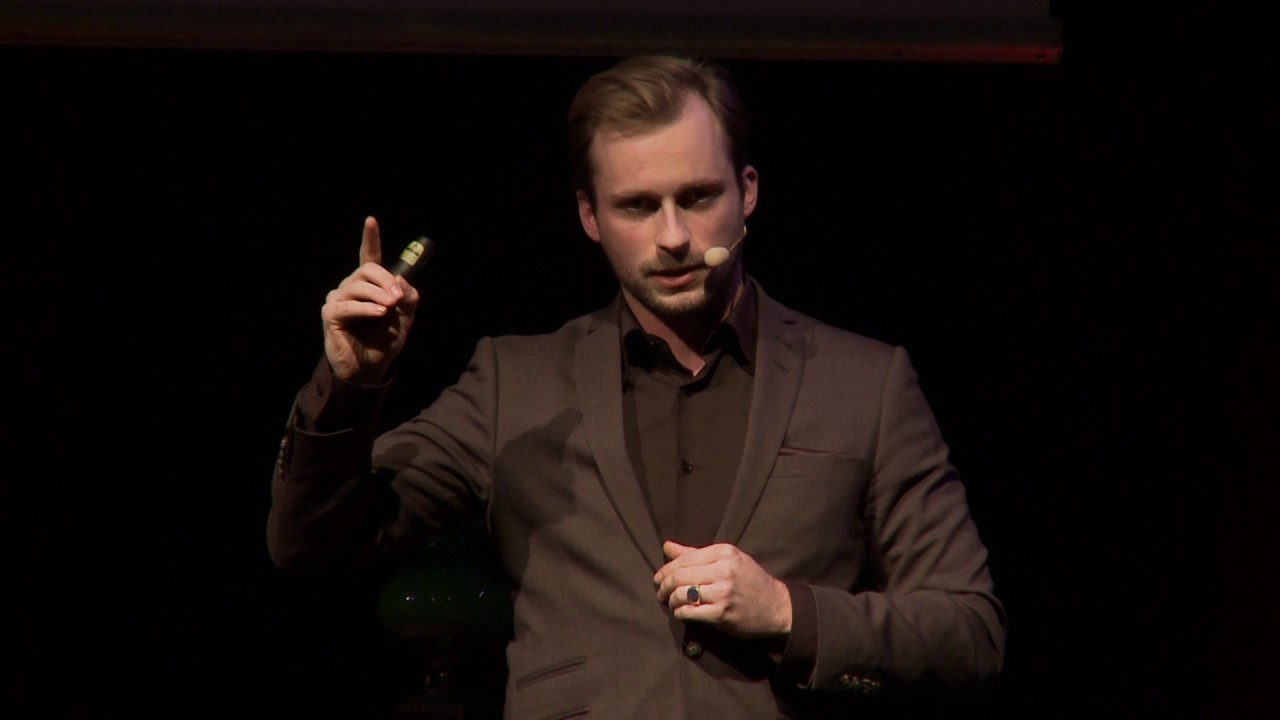Big Think
Philosopher Daniel Dennett takes issue with neuroscientists who say that neuroscience shows that humans don’t have free will. In this video, Dennett demonstrates an intuition pump (or thought experiment) featuring a “nefarious neurosurgeon” who lies to a patient with obsessive compulsive disorder. Dennett argues that telling people that free will is an illusion makes them less concerned about the negative implications of their actions.
For the full playlist go to BigThink.com: http://bigthink.com/playlists/daniel-dennett-how-to-think-like-a-philosopher
Follow Big Think here:
YouTube: http://goo.gl/CPTsV5
Facebook: https://www.facebook.com/BigThinkdotcom
Twitter: https://twitter.com/bigthink
Transcript – Daniel Dennett: Well, let me trot out one of my recent favorites which I devised to jangle the nerves of neuroscientists who’ve been going around saying that neuroscience shows that we don’t have free will. I think their reasons for saying that are ill considered and moreover that what they’re doing is apt to be mischievous and doing some real harm. So I concocted a little thought experiment. A little intuition pump to suggest that. So this is the case of the nefarious neurosurgeon who treats a patient who has obsessive compulsive disorder by inserting a little microchip in his brain which controls the OCD, the obsessive compulsive disorder.
Now there is such a chip. It’s been developed in the Netherlands and it works really quite well. That’s science fact. But now here comes science fiction. So the neurosurgeon, after she’s operated on the guy, sewed him all up. “So I’ve got – your OCD’s under control now you’ll be happy to learn. But moreover our team here will be monitoring you 24-7. And we’re going to be controlling everything you do from now on. You’ll think you have free will. You’ll think you’re making your own decisions but really you won’t have free will at all. Free will is an illusion that we will maintain while controlling you. Goodbye, have a nice life.” Sends him out the door.
Well, he believes her. She had a shiny lab and lots of degrees and diplomas and all that. So what does he do? Well, he — thinking he doesn’t have free will anymore he gets a little self-indulgent, a little bit aggressive. He’s a little negligent in how he decides what to do. And pretty soon by indulging some of his worst features he’s got himself in trouble with the law. He’s arrested and he’s put on trial. And at the trial he says, “But your honor, I don’t have free will. I’m under the control of the team at the neurosurgery clinic.” They say, “What’s this?” And they call the neurosurgeon to the stand. They say, “Did you tell this man that you were controlling his every move, he didn’t have free will?” She says, “Yeah, I did. But I was just messing with his head. That was just a joke. I didn’t think he’d believe me.”
Now right there I think we can stop, take a deep breath and say, “Well, she did something really bad. That was really truly harmed him. In fact, her little joke telling him that actually accomplished nonsurgically pretty much what she claimed to accomplish surgically. She disabled him. By telling him he didn’t have free will, she pretty much turned his free will off and turned him into a morally incompetent person. Now, if we agree that she did a bad thing — if nobody recommends people play jokes like this — what do we just say about the neuroscientists who are telling the public every day, we’ve shown in our neuroscience labs that nobody has free will.
I think if the neuroscientists recognize that what my imaginary neurosurgeon did was irresponsible, they should think seriously about whether it’s irresponsible of them to make these claims about free will. And it’s not just a fantasy. Vohs and Schooler in an important paper which has been replicated in several different ways set up an experiment really to test this with college students who were given two texts to read. One was a text — they were both from Francis Crick’s book, The Astonishing Hypothesis. And one was not about free will and the other was about free will and basically it said free will is an illusion. All your decisions are actually determined by causes that neuroscience is investigating. You don’t have free will, that’s just an illusion.
Directed / Produced by Jonathan Fowler, Elizabeth Rodd, and Dillon Fitton
Source




Who cares if it’s “irresponsible” if it’s absolutely true?
Steven Pinker addresses this in his book The Blank Slate_, Chapter 10, "The Fear of Determinism." He writes, "Something has gone terribly wrong. It is a confusion of _explanation with exculpation_. . . . But punishment even in the pure sense of just deserts is _ultimately_ a policy for deterrence." He mentions the M'Naughten rule, which is an "excellent characterization of a person who cannot be deterred." So not having free will is not a get-out-of-jail card.
On another note, the subjects know they are participating in a psychology test and what they do is not a really big deal. I don't think this necessarily means a whole lot for what they would do afterward.
if we don't have free will does that mean we can't take credit for our achievements? If we don't make our own decisions and everything is predetermined that means we're just along for the ride and we have no control over our actions? Seems a little ridiculous to me? if it's not us then who or what is pulling our strings
the whole idea of "not being free" presupposes that there is, in this universe, a contrary condition of "being free".
if humans aren't free (and we are the most complex systems that we have found so far), then nothing is.
claiming that you are not free is a logical fallacy, based on the misuse of language.
First, By saying one has no free will, it does not equals to that he's under controlled, instead, it means his behavior is totally predictable. Second, you may still responsible for your action even you do not have a complete free will. For example, if someone is drunk, and he killed a man while driving, he is still responsible no matter if alcohol is controlling his mind.
Coming from a guy who argues that consciousness itself is an illusion.
Notice he says "she" when referring to the neurosurgeon to gain points with the feminists.
The factors involved in the operation of the human mind are constantly, and thus, infinitely variable. Causal analysis only works after an action is taken, in hind sight. It is infinitely uncertain before then, and thus, not possibly deterministic.
LOL freewill is an illusion.
If we didn’t have free will we wouldn’t free willy.
folk use their free will by towing the religio party line
if they wish to go to heaven or be reincarnated
and that is an illusion.
I have free will. I have no fear of the system. I believe in a heaven.
I think that knowing we dont have free will brings freedom like Sam Harris thinks. We worry too much how we are and what we do and how we should be. For me, knowing I dont have free will, brough such freedom from unnecessary worrying. It brought me closer to who I am. I still dont go killing and murdering sprees. I understand what Dennet is trying to say though.
We should stop telling people they don't have free will because that would be telling them a stupid lie. And Sam Harris' fan boys will choose to be butt-hurt after reading this because they, too, have free will, but have been duped by their fanatical naturalistic faith into thinking they don't.
So… I don't get it. Free will does exist so don't exercise your free will to tell people it doesn't exist? Hmmm sounds backwards to me
So we who are in possession of this knowledge should blatently lie to the public? Science is about truth. Nothing anyone says can convince me to lie about a fact which I feel has been sufficiently proven. People should be educated on this, and it should be explained that their actions still matter and they will still be held responsible for their actions. People don’t need to be “sheltered” from the truth. They need to be educated.
This is in essence a version of claims that you have to believe in God in order to be a good person. Do not tell people that ideas of deities are illusions and unsubstantiated, otherwise social order will break down.
This is why the Santa Claus horseman is least popular.
So many dislikes, ?
Jesus… I don’t know much about Dan but I suspect he isn’t dumb… this video then, is an anomaly. What an idiot (on this issue)
You mate, are a philosopher, not a neuroscientist!
Is the argument that we shouldn't say what it true because it may have implications? Should we embrace religion on the same basis since so many believe it's the foundation of our morals? It's sufficiently clear that a significant degree we behave in a way which is determined below our conscious operation. Unfortunately this piece at least doesn't touch the argument at all, which is more important. I had hoped for more from this if I'm honest. I think there may be something between consciousness and future behaviours in a feedback loop that I haven't seen explored. Maybe that experiment is a thread to pull on.
The FACT of having or not having free will in an absolute manner and believing in suggestions induced into you by other people is not the same thing, yet suggestions/manipulation and free will are interconnected. He gives an example of a made up story with a man that is influenceable by somebody's suggestion. Most people are influenceable by suggestions of others. People filter the least information from people that are close to them (kids don't filter much information coming from parents) and from authoritative figures (why people follow spiritual leaders, priests, etc). The informations one accepts eventually model how he thinks and how he acts. A parent that has a bad influence on his child will determine to a certain extent the child's life (e.g. if parent cuts his wings when he tries to do something for example, child will likely grow into an adult that doesn't believe in himself much). The way i understand lack of free will practically is precisely in this way, based on bad information that made its way into a person's conscious and especially subconscious mind. You have personal desirer/choices in life and if you can fulfil them, then you will be happy. If on the other hand your subconscious has been corrupted in an unhealthy manner, you will have a hard time fulfilling your desires.
In other words we are the result of thinking patterns developed over time based on past experiences and based on the information we accept as true (which is not the same with information that IS true). More clearly, even though you may want to be a millionaire, you will be affected by a lot of things, especially the information you have access to and the sum of all that information and internal programs might be opposing you becoming a millionaire. Ad to that opposing external factors (e.g. you are born in a super poor family in a poor neighbourhood in a country ridden by war) and your chances of becoming millionaire are reduced drastically.
One fallacy people believe in (especially these days) is that you can change your life by changing the way and about what you think (e.g. positive thinking). Lots of people reading self help books like The Secret end up wrongly believing this is true. The fact that it doesn't work is quite easy to demonstrate – calculate % of people that believed that and accomplished low probability achievements from the total number of people that read The Secret. Subjectively most people who read The Secret or similar books are self fulfilling prophecies – they BELIEVE it worked for them, not because objectively it did but because they choose that comfortable lie vs. an unpleasant truth.
If everything your mind thinks is based on this "construction" that is your mind, which evolved over time, that means choice becomes a deterministic (or more correctly probabilistic) equation where if you had all the data that "made up" a person you could probabilistically make statements about his current person. This is actually demonstrated to be true by various studies. For example a high percentage of people that have addictions (of any sort) have had a good deal of suffering/trauma in their life (originating in most cases in childhood). There are lots of correlations like that where you can probabilistically determine a person's current state and/or choices based on his past.
Even more than that, by taking certain actions you can "manipulate" behaviour in a person (read Influence Science and Practice by Robert Cialdini) – that's why advertising, marketing and sales have elements to influence a consumer (e.g. certain type of music in a supermarket will increase sales, certain product display choices will make customer buy, free shipping, "50% off" labels, etc).
A lot of people here seem to not read with understanding, and they claim to be "smart". Blinded and delusional, you cannot help but miss the fact that the title says "Stop Telling People They Don't Have Free Will".
And it is all about that. It might have truly horrible consequences. Nowhere Dennett claims that it is entirely false to say that we "don't have free will".
I don't mind not having free will.
In fact, I usually choose to ignore it.
The way I deal with this is I tell myself that regardless of how predetermined my choices are, they are still mine to make and I'd better make some good ones.
If you're interested in knowing the truth about something, attacking the conclusion of an argument won't prove it false… It's the premises or the logic of the argument that should be attacked to prove the conclusion false, or unsupported.
If scientists should hide potentially harmful findings, it conflicts with their responsibility say the truth.
It's not clear which of the two responsibilities wins out.
We could try to measure the potential amount of harm that a finding would potentially cause.
Then compare it to the value of truth, morally + instrumentally, all the benefits it could lead to.
good luck with that :s
Hes talking about Sam Harris and hes failing to understand what sam has said. Sam has said that the court system operates like there is free will. He also explains how believing we dont have free will actually helps by increasing empathy towards criminals, while at the same time explaining why they should also be locked up. Dan simply doesn't like the idea – I see no good arguements from him against Sam's clearly laid out reasoning
The study he discusses is not a controlled study. The "other group" read a passage about the importance of studying consciousness. This could have primed people to behave more ethically. Or not idk…
the big stink…intelligence is giving yourself as many choices as possible.
there is no free will but here might as well be